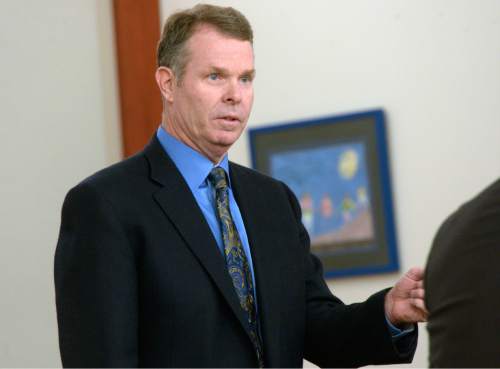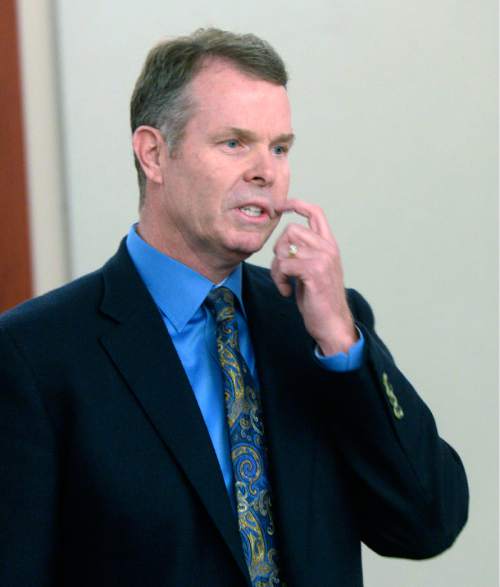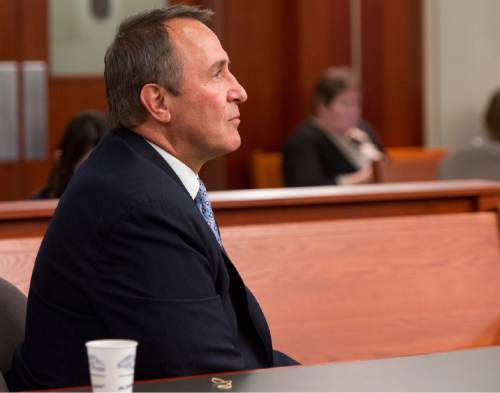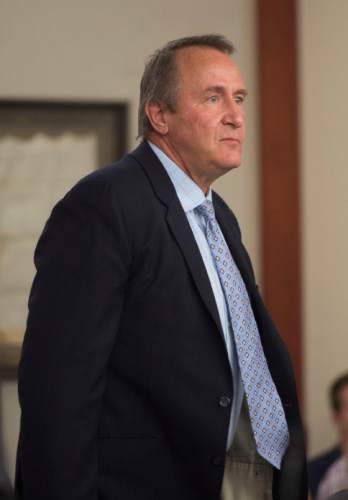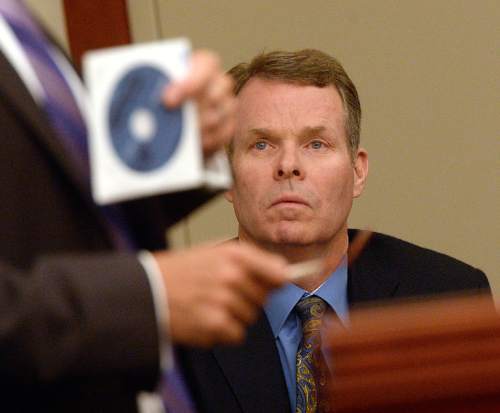This is an archived article that was published on sltrib.com in 2016, and information in the article may be outdated. It is provided only for personal research purposes and may not be reprinted.
The same judge who barely a week ago threw out the public corruption case against former Utah Attorney General Mark Shurtleff has denied a motion to dismiss the criminal charges against his handpicked successor, John Swallow.
In a ruling released late Friday, 3rd District Judge Elizabeth Hruby-Mills declared that prosecutors did not intentionally violate Swallow's constitutional rights when private emails were commingled with evidence in the case and said she intends to set a trial for the onetime GOP officeholder at a hearing Aug. 12.
Defense attorney Scott C. Williams said he was disappointed with the ruling and will seek a review of the decision from the Utah Court of Appeals.
Swallow sought the motion to dismiss in April, asserting that thousands of his emails with a private attorney had been seized and read by prosecutors and investigators after a raid on his Sandy home in 2014.
The communications, which were on Swallow's computers, document a period between 2012 and 2013 when state and federal agents were investigating allegations of bribery, corruption and misconduct in the Utah Attorney General's Office by Swallow and Shurtleff. The emails, Swallow's lawyers have said, included discussions about possible legal strategies or actions their client might take during the investigation.
The breach was a gross violation of Swallow's rights, Williams argued, and should be grounds for dismissal.
Salt Lake County District Attorney Sim Gill has maintained that his office did nothing wrong and that neither his staff nor FBI investigators had read the emails or used the information in them as the basis for the criminal charges filed in July 2014.
Williams had challenged those claims, questioned the veracity of affidavits from FBI investigators that denied wrongdoing and sought to explain how the materials were handled.
That the judge sided with "the [prosecutors'] desire to hide behind affidavits that we have shown reason to believe are false" was disappointing, Williams said.
But "there are many other bases to dismiss," he said, "that we will now pursue."
In her ruling, Hruby-Mills said she believed prosecutors did not act intentionally and "immediately took steps to ameliorate the situation" when defense attorneys discovered the problem.
"There is no purposeful intrusion," the judge said in the six-page ruling.
But Hruby-Mills also said she could not condone the "apparent lack of stringent practices" in Gill's office, which appears to have contributed to the problem of evidence mixing.
Gill's office has said the privileged communications became commingled when all of the materials were turned over to a Salt Lake City company that prepares evidence for trials. Before that, the material was in the hands of the FBI, Gill has said.
"The court admonishes the prosecution team to be cognizant of the deep responsibility that surrounds its handling of potentially privileged communications such as that at issue here," Hruby-Mills wrote.
Gill, a Democrat, said he was pleased by the judge's ruling Friday and restated that his office had not read the emails.
"As I've said, this is a process, and we made our arguments," he remarked, "and now we move forward with our prosecution."
Swallow has pleaded not guilty to 14 felony and misdemeanor charges, including counts of money laundering, misuse of public funds, obstruction of justice and falsifying government records. If convicted, he faces a possible punishment of 30 years in prison.
The charges stem from allegations of a pay-to-play scheme inside the Utah Attorney General's Office, both when Swallow was a chief deputy and after his 2012 election to the state's top law enforcement job.
Swallow resigned his post in late 2013 after serving less than a year in office.
The FBI initially investigated sweeping allegations of corruption, but federal prosecutors declined to bring charges in fall 2013. State prosecutors picked up the case.
Shurtleff, also a Republican, was ensnared in the scandal and initially was charged alongside his successor. Their cases were split, and each was prosecuted separately.
Hruby-Mills dismissed Shurtleff's charges last week at the request of his chief prosecutor, Davis County Attorney Troy Rawlings, a Republican.
Twitter: @jenniferdobner


